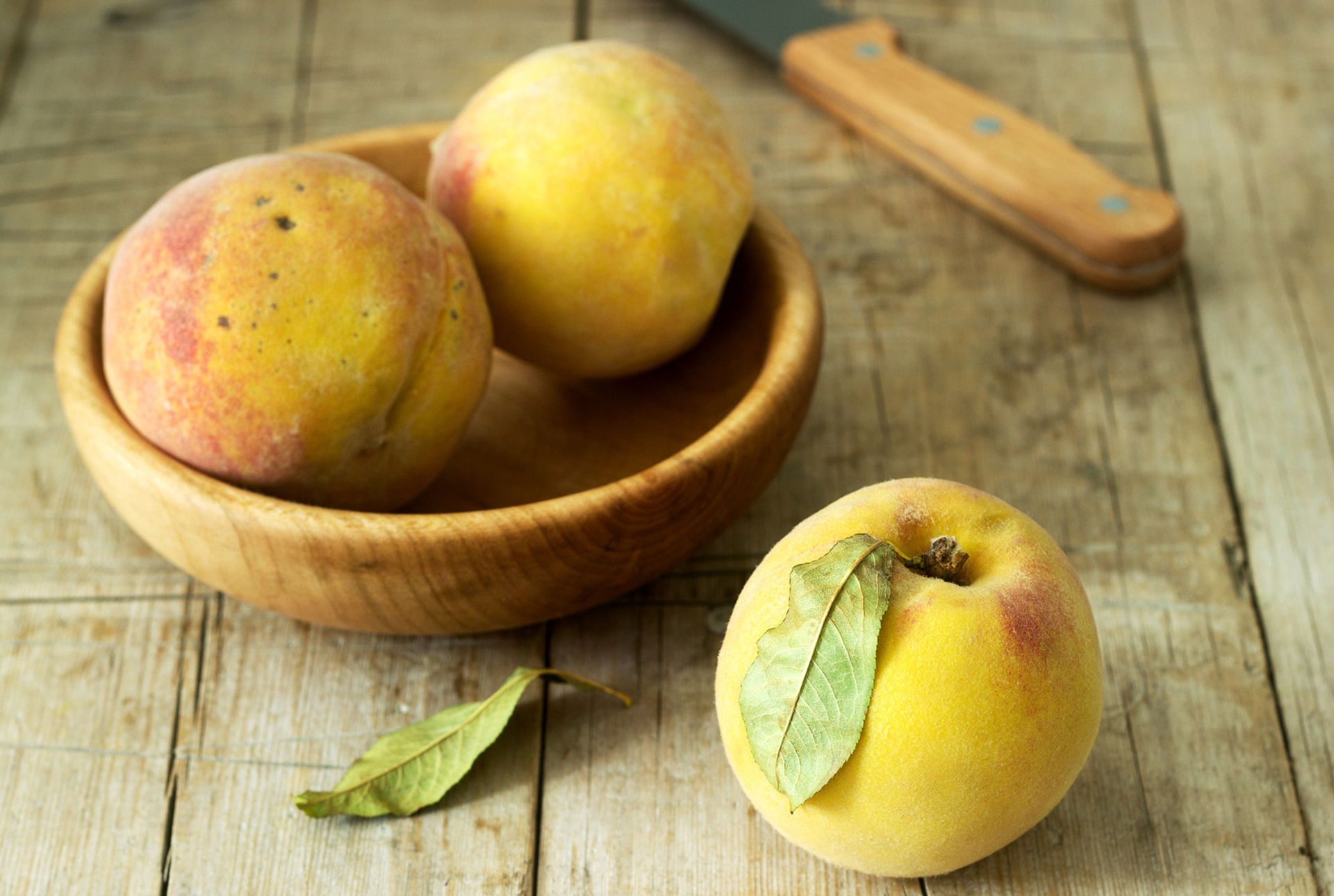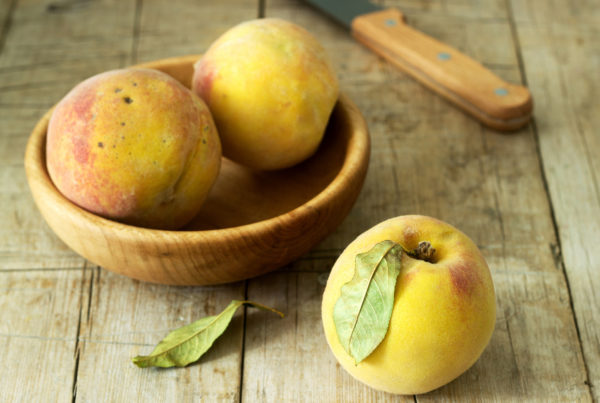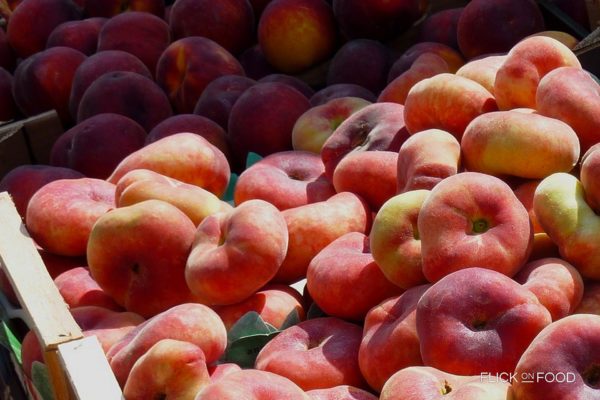
The only peach that matures in September. Perfect for making syrup!
Origin
The only peach you’ll find from September to december is the late harvest peach of Leonforte. No more than 400 tons are produced yearly, and only in 5 towns in Sicily: Leonforte, Enna, Calascibetta, Assoro and Agira. They have sweet yellow flesh with rosy tones and their origins are a reflection of the beauty and uniqueness of Italy. Several decades ago in the Enna area, peach trees were growing whose fruit ripened in September. They were so fragrant that they attracted the Mediterranean fruit fly, a parasite which threatened the trees’ survival. But a crafty farmer came up with an idea to save this unique fruit, and the procedure was ‘patented’ in the 60s by someone named Pappalardo di Acireale. The fruit is wrapped in parchment paper 120-150 days before fully ripening, and this technique protects the peaches from parasites and bad weather, and reduces the need for industrial fertilizers. This system turned out to be an excellent way to protect the product as well as the area’s biodiversity.
Cook it
When picked, the stem is twisted until the fruit pops off. Firm, extremely fragrant and very sweet, these peaches are perfect to eat fresh or in jam, and are especially good for making peach syrup. They are delicious in tiramisu or with Bronte pistachios and pizzuta d’Avola almonds, for a true Sicilian taste sensation. Not only do they taste lovely, but they’re also rich in vitamins and give skin a major boost.
Did you know
While this variety, also known as the “settembrina”, is quite unique, there are actually several types of PGI peaches from Leonforte. Some mature even later, in November. These can be distinguished by the color and stripes of their skin. With a bold flavor and firm flesh, all of the late harvest peaches of Leonforte are protected by a Consortium established in 1996, and by procedural guidelines that govern the cultivation techniques and trade even outside of Italy. This unique fruit also gained PGI status in 2010.






